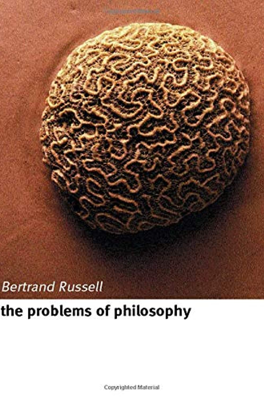On Our Knowledge of General Principles
Indubitable General Principles Beyond Experience
Bertrand Russell delves into philosophical principles that, while crucial for making inferences from our sensory experiences, cannot be themselves proven by those experiences. These principles, including the principle of induction, are universally accepted yet not derived from empirical evidence. They are necessary for the truthfulness of our data-based inferences and significantly impact constructing sound knowledge theories.
Understanding Through Instances and Generalization
Russell explains that our understanding of these immutable principles typically emerges from recognizing their application in specific instances and then realizing their broader, general applicability. This pattern of learning mimics how we understand arithmetic truths such as "two and two are four," which although learned through particular examples, are recognized as universally applicable.
Logical Principles and Deductive Reasoning
The chapter discusses certain self-evident logical principles, which are foundational to all logical reasoning. These include:
- The principle that if something implies another thing and the former is true, the latter must also be true.
- The classical "Laws of Thought" which encompasses the law of identity, contradiction, and excluded middle.
Russell underscores that the validity of these principles doesn't stem from our ability to think according to them, but because adhering to them helps reflect the actual behavior of reality, hence allowing us to infer truths.
Empiricists vs. Rationalists: The Historical Debate
Russell revisits the historical debate between empiricists, who claim that all knowledge derives from sensory experience, and rationalists, who argue for inherent knowledge of certain principles ("innate ideas"). He suggests that while all knowledge, including principles of logic, triggers from experiences, these principles themselves cannot be proved solely by empirical evidence, hence siding partly with rationalists.
The Limited Scope of A Priori Knowledge Regarding Existence
Further, Russell clarifies that a priori knowledge, although independent of experience in proving its validity, still requires some form of empirical interaction to be recognized or elicited. Importantly, he highlights that though such knowledge can establish connections between existing or potential entities, it cannot prove the existence of these entities. Therefore, all definitive knowledge of existence must partly rely on empirical evidence.
A Priori Knowledge in Ethics and Mathematics
Apart from logical deductions, Russell points out other domains of a priori knowledge, such as ethics and pure mathematics. He argues that ethical judgments about the intrinsic value of things like happiness or knowledge are immediate and cannot be derived from empirical data alone. Similarly, in mathematics, the fundamental truths observed are universally valid and represent necessary conditions of understanding rather than mere empirical generalizations.
The Philosophical Significance of Pure Deduction
The chapter also contrasts pure deductive reasoning applicable in mathematics and logical constructs with inductive reasoning used in empirical sciences. While empirical generalizations are susceptible to exceptions and conditioned by the observations they are based on, mathematical and logical deductions confer a more profound certainty and universal applicability, highlighting a crucial aspect of human knowledge acquisition.
In conclusion, Russell's exploration highlights how certain general principles, though undeniably part of our knowledge structure, transcend simple sensory experiences and provide a framework for both understanding and interrogating the universe logically and ethically.
